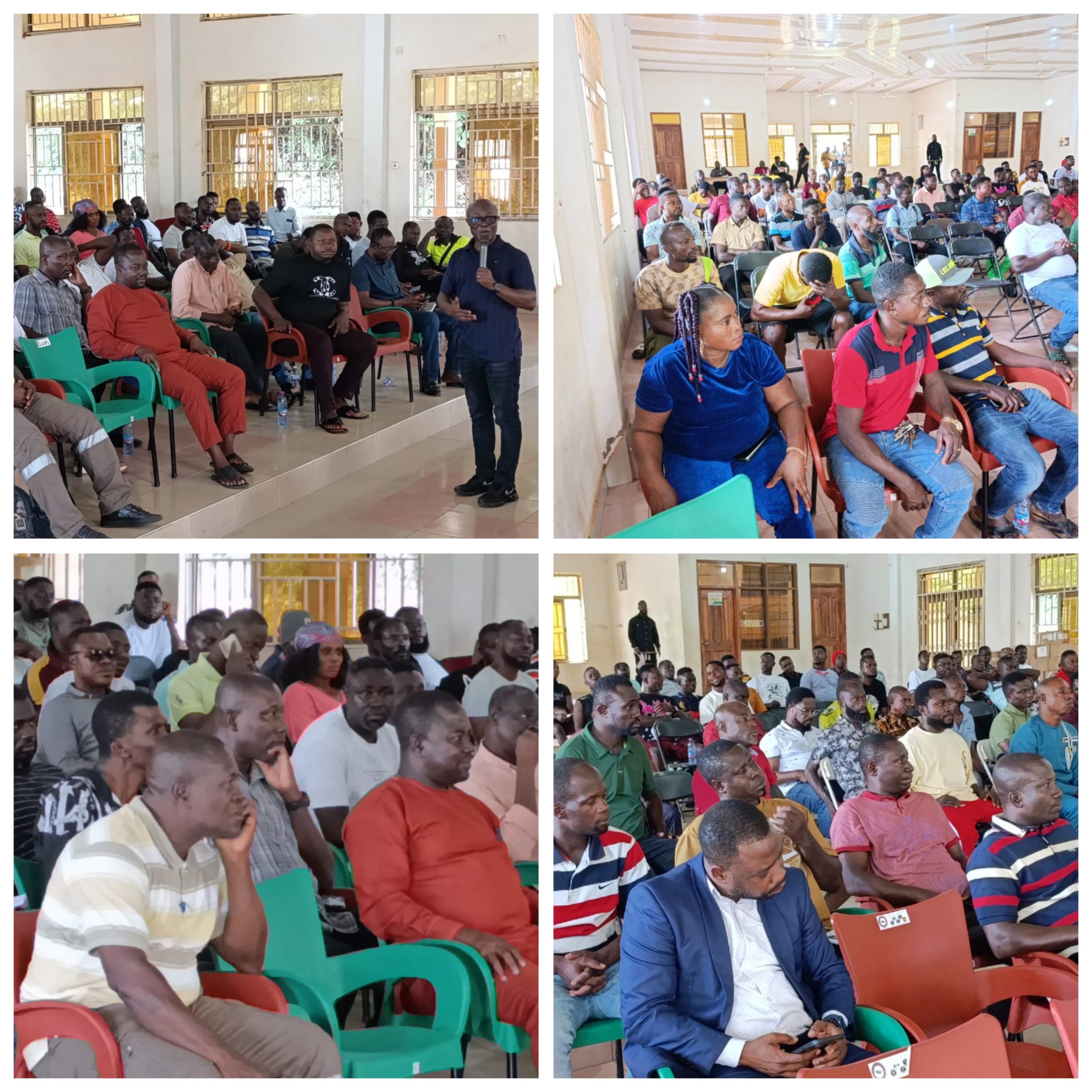Ten Peace and Love Hospitals staff and KNUST Counseling Center receive training in cancer genetic counseling and testing
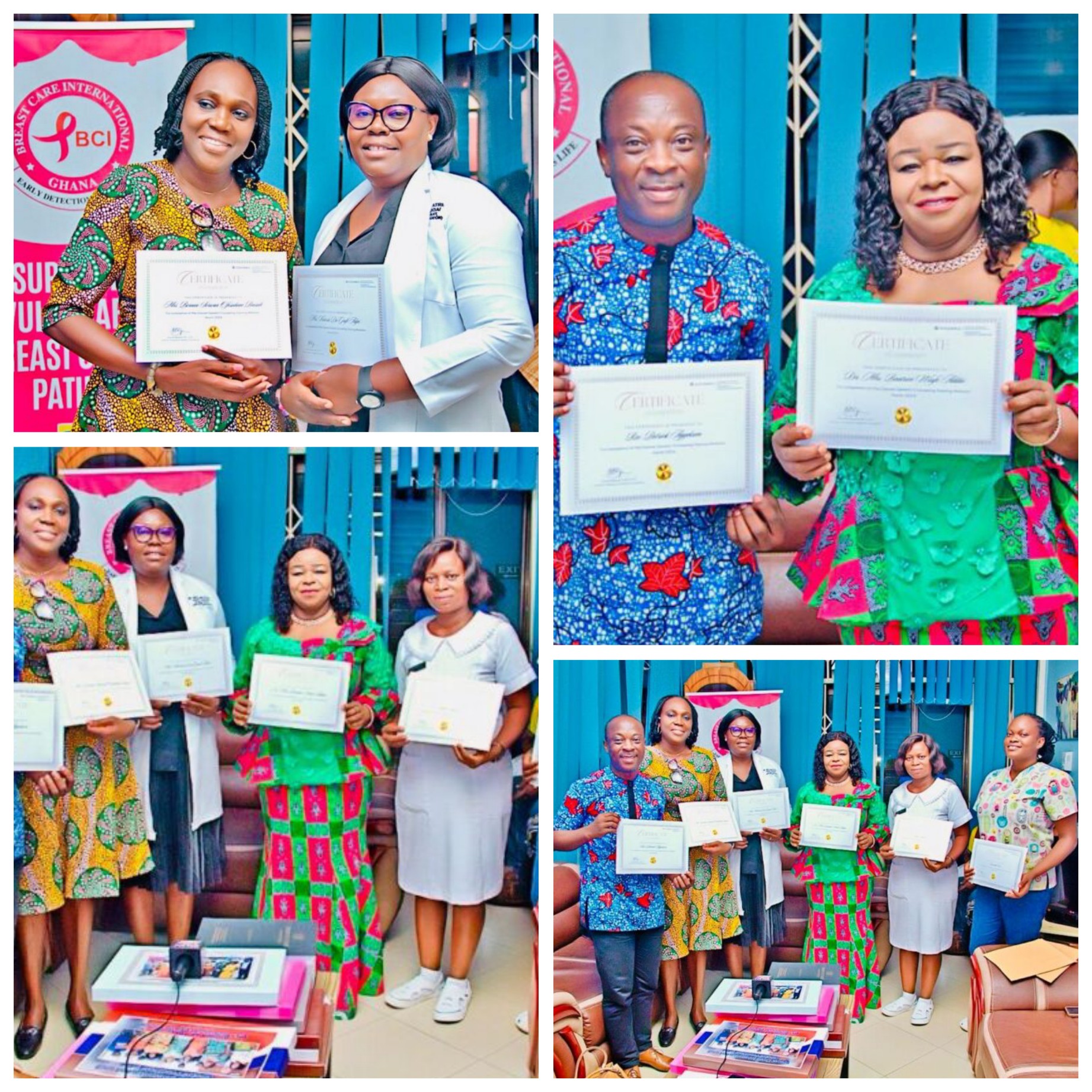

Ten individuals from Peace and Love Hospitals, Ghana, and Kwame Nkrumah University of Science and Technology (KNUST) Counseling Center have received training in cancer genetic counseling and testing from Columbia University, USA.
The maiden training in Ghana, which lasted for 4 weeks, started from Wednesday, March 6 to Thursday, March 20, 2024, and covered 8 modules with 8 sessions at 4 hours per session in cancer genetic counseling and testing.
These modules were successfully completed by the student trainees/beneficiaries, to equip themselves with the skills and knowledge necessary to combat breast cancer and other cancers in Ghana.
The modules covered topics such as genes and the molecular basis of inheritance, background on cancer biology, diagnosis, management, and treatment, indications for cancer genetic counseling, and principles of genetic counseling.
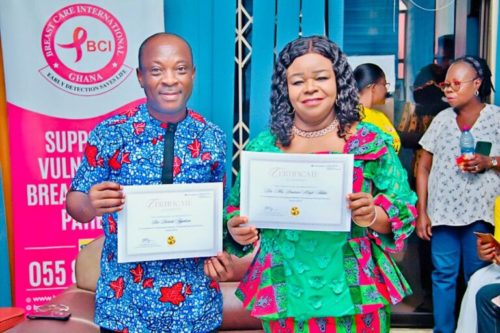
Others ones Information gathering (family history, medical history, social history), Risk assessment and risk calculation, Genetic counseling case scenarios, Information-giving (risks, options, selecting tests), Disclosing results, cascade testing, and implications for medical management.
Certification of participation and completion was given to the students and trainees, including the Chief Executive Officer of Peace and Love Hospitals, Dr Mrs Beatrice Wiafe Addai, at a brief ceremony on Friday, April 12, 2024, at Peace and Love Hospitals premises.
During the presentation, the CEO of Peace and Love Hospitals, Mrs. Beatrice Wiafe Addai, disclosed that the collaborative effort between Columbia University USA, Peace and Love Hospitals/Breast Care International, and KNUST (Counseling Unit) is undoubtedly going to be the game changer.
She lamented that in Ghana, breast cancer patients do not benefit from genetic profiling tests and counseling, which offers a more comprehensive approach to cancer care not only for the individual patient but for her family as well.
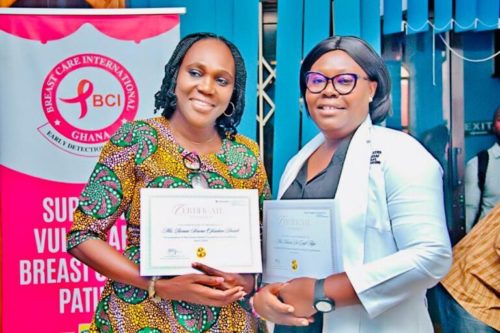
Dr Wiafe Addai, who is also the President of Breast Care International (BCI), pointed out that these tests lessen the psychosocial effects of a breast cancer diagnosis, and also provide preventive measures for family members.
“It is well established that when evaluating a new patient, a family history is obtained, but often many of the important features necessary to identify a family at hereditary risk are not assessed. When assessing a family for hereditary risk, a complete history should be obtained to include three generations and note all cancer diagnoses and ages of diagnosis,” she said.
She added that “For unaffected women with a strong family history of breast cancer, genetic counseling is also valuable. Genetic testing for breast cancer susceptibility has advanced tremendously, but we are only scratching the surface of our understanding of the role heredity plays in carcinogenesis.”
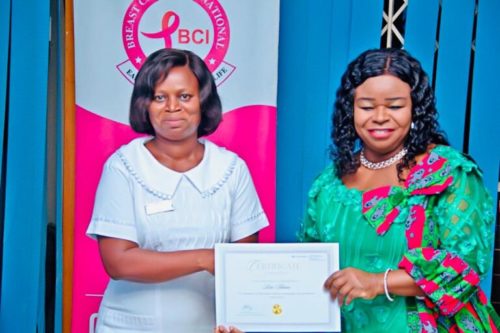
With the capacity building in cancer genetic counseling, Dr Wiafe Addai thought that it would significantly lower the death rate from breast cancer in Ghana.
A Genitive Counseling and Testing trainee, Bernice Serwaa Ofosuhene, who is a Senior Counseling Psychologist at the KNUST, was of the view that the maiden training in Ghana will reduce psychological trauma connected with breast cancer and other cancers.
Source :Francis Appiah


